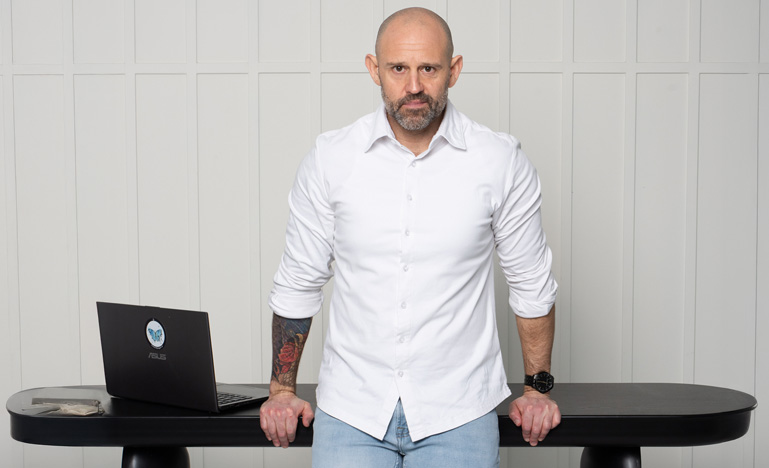A coach in their corner
More and more Canadians can’t afford the thousands of dollars typically required to hire a lawyer. Is legal coaching the solution?

Legal problems — a good many Canadians have them.
A project by the Canadian Forum on Civil Justice found that nearly every adult in this country will experience a serious civil or family justice problem in their lifetime.
According to Statistics, nearly one in five Canadians experiences serious legal problems each year.
A huge swath of them don’t qualify for legal aid, yet they can’t afford to hire a lawyer. As a result, up to 80 per cent of civil and family litigants opt to represent themselves.
They arrive with improperly drafted documents, no knowledge of the law, and no familiarity with court proceedings, all putting a heavy burden on a justice system already facing serious backlogs.
That’s where legal coaches are looking to make a significant impact, offering a more affordable alternative to traditional legal services — at least in straightforward cases.
Rather than representing their client, these legal professionals provide guidance behind the scenes at a fraction of the cost. Coaches can help clients decide on the best course of action and then help them achieve it by answering questions, reviewing documents and prepping them for their day in court.

Will those self-represented litigants argue their case as well as a lawyer?
“No, probably not,” says Saskatchewan-registered lawyer and legal coaching pioneer Jo-Anne Stark.
“But they’re going to go in there and they’re going to understand what the issues are. They’re going to stick to those issues. They’re going to have their documents ready to go … They’re not going to waste the court’s time.”
She says having a coach in the background “really empowers the client.”
Empowering self-represented litigants
At Momentum Legal Solutions in Dieppe, New Brunswick, Marie-Hélène Haché offers legal coaching and unbundled legal services in addition to full-service representation, largely focused on family law.
She sometimes helps clients understand nit-picky court filing requirements, ensuring their documents aren’t rejected because they’re missing a page number or the margins are off by a centimetre. In other cases, Haché explains court processes and helps her clients develop their strategy.
“They appreciate having someone to bounce stuff off and hold their hand,” she says.
“I like seeing my clients leave my office relieved.”
At Butterfly Legal in British Columbia, Matt Canzer offers coaching for small claims cases. That can involve anything from a small business owner facing a breach of contract to homeowners dealing with an uncooperative renovation contractor.
“So much of a small claims case is about telling the facts clearly and through admissible evidence,” says Canzer, an experienced litigator who began coaching in 2021.
“That’s really hard to do if you don’t have legal training.”
He connects with clients via videoconferencing to discuss specific concerns. He’s also about to launch a self-guided online course that covers everything from determining a case's merits to organizing court documents.
Canzer says the biggest areas where self-represented litigants need support aren’t conducting research or understanding case law. They need help deciding on strategy — like when to make an offer or how to deal with an unresponsive opposing party — and managing emotional stress.
“I want my clients to feel as calm as possible,” he says.
“I want them to feel clear about their options, both the risks and the benefits, and confident in making a decision that’s in their best interests.”
A question of fit
Not every lawyer makes a good coach. The role requires a willingness to let go and let the client take control, as well as the ability to translate complex ideas into plain language. It also calls for a high degree of empathy and emotional intelligence.
On the other side, coaching isn’t right for every client either.
“You might save on legal fees, but there’s going to be time that you put into this, emotional energy, and that’s not something to disregard,” Canzer says.
For Haché, the ideal candidate is smart, organized and well-prepared.
“They have all of their things in order,” she says.
“And you can tell from the first few interactions that they want to take charge or take control of their own matter, and they just want some pointers.”
While most people would prefer to be able to delegate that to someone who does this professionally, Haché says that legal coaching provides a welcome alternative for individuals and businesses unable to afford representation.
She sees it as an opportunity to make a bigger difference as a lawyer.
“It allows us to help more people and get them results.”
From a business perspective, coaching helps her fill in the odd hours in her schedule when she doesn’t have room to take on a full-service client.
Making legal coaching mainstream
When Stark launched her legal coaching business a decade ago, she knew of only two others offering similar services in Canada. But when requests for coaching started flooding in from across the continent, she realized she could make a bigger impact by training more coaches and helping the legal industry embrace this new way to support “do it yourself” clients.
She sat on committees, published Mastering the Art of Legal Coaching and founded the Legal Coaches Association, which offers the certified legal coach course.
Today, Stark says coaching demand and supply continue to increase, without taking work away from existing firms. After all, companies will always need lawyers to handle complex matters and to represent them in court. And there will always be wealthy individuals who can afford legal representation.
Coaching represents an untapped market.
“If I look 10 years out, I think it’s just going to be mainstream,” she predicts, adding that it will benefit clients, lawyers and the justice system.


